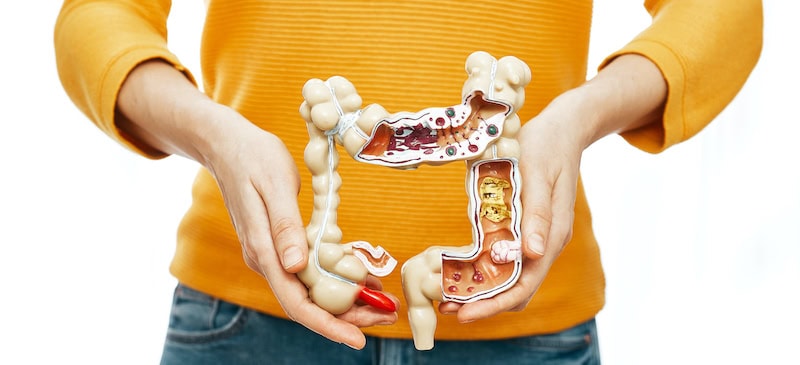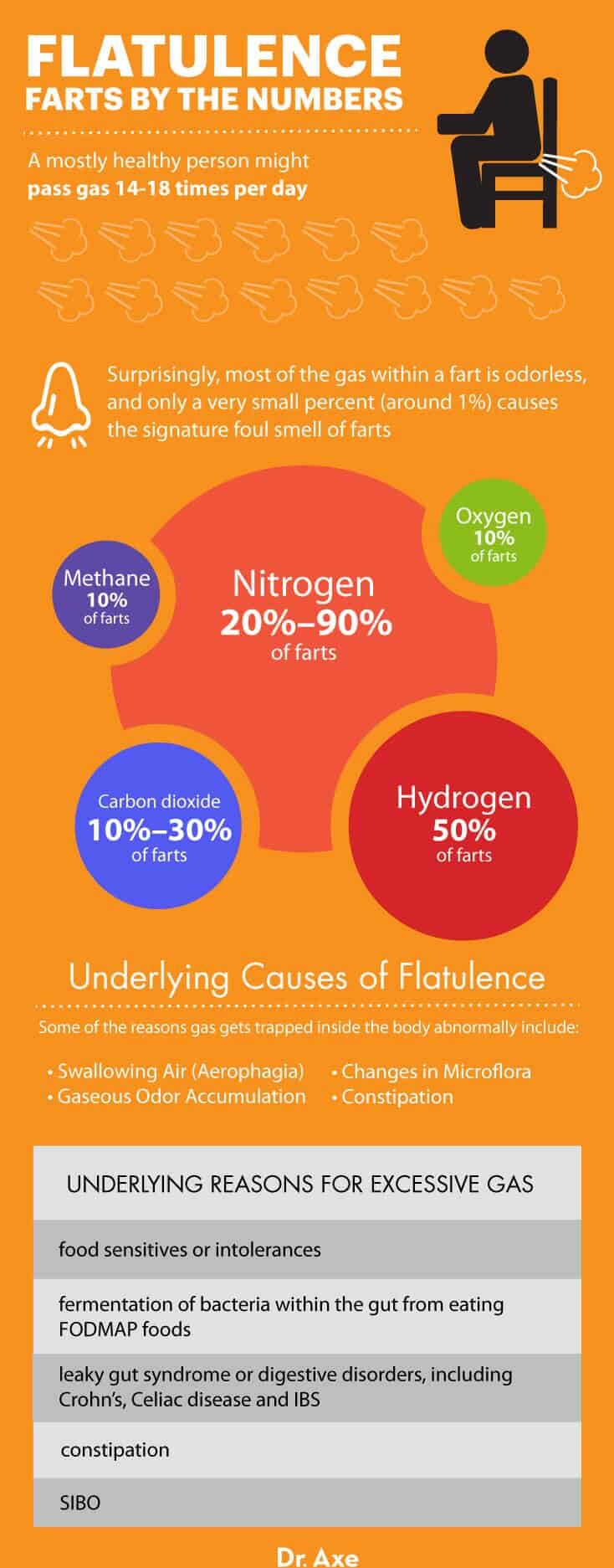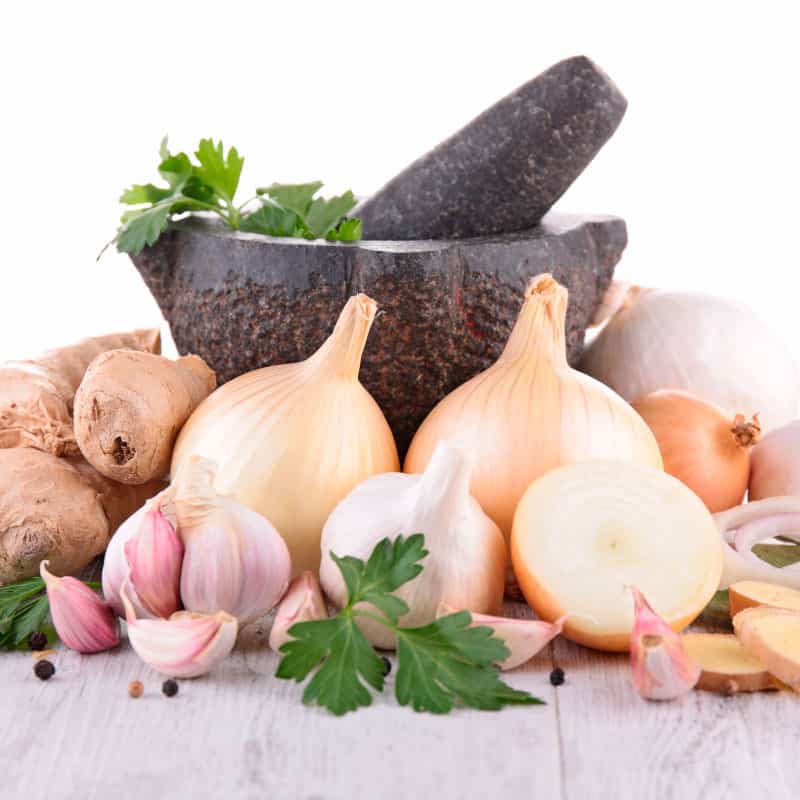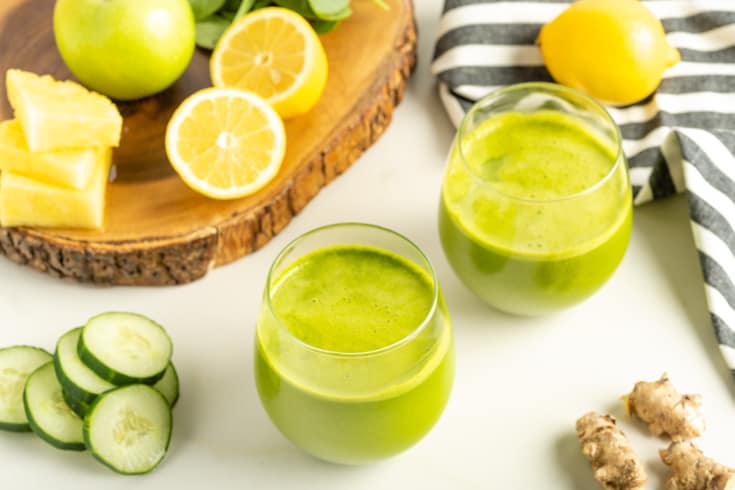This Dr. Axe content is medically reviewed or fact checked to ensure factually accurate information.
With strict editorial sourcing guidelines, we only link to academic research institutions, reputable media sites and, when research is available, medically peer-reviewed studies. Note that the numbers in parentheses (1, 2, etc.) are clickable links to these studies.
The information in our articles is NOT intended to replace a one-on-one relationship with a qualified health care professional and is not intended as medical advice.
This article is based on scientific evidence, written by experts and fact checked by our trained editorial staff. Note that the numbers in parentheses (1, 2, etc.) are clickable links to medically peer-reviewed studies.
Our team includes licensed nutritionists and dietitians, certified health education specialists, as well as certified strength and conditioning specialists, personal trainers and corrective exercise specialists. Our team aims to be not only thorough with its research, but also objective and unbiased.
The information in our articles is NOT intended to replace a one-on-one relationship with a qualified health care professional and is not intended as medical advice.
Is Flatulence Good for You? (Does It Depend on the Smell?)
May 8, 2024

Most of us have been there: experiencing excessive farting that feels out of our control and causes a whole heck of a lot of embarrassment. While the average person farts nearly every day, some people deal with a bloated stomach and excessive flatulence more often than others. One of the most aggravating things about having gas is that it can seem impossible to minimize and to narrow down the exact culprit, considering dozens of different things can potentially be to blame.
As you’ve probably experienced firsthand many times, some farts can be pretty foul-smelling and noisy, while others easily slip below the radar. Wondering how much farting is too much? A mostly healthy person might pass gas 14–18 times per day, sometimes not even realizing it because the farts are mostly silent and odorless.
Rather than how often you fart, however, you might want to take a look at the smelliness of your flatulence and to examine other digestive symptoms present in order to determine if it’s really become a problem.
Is there likely anything to be worried about when it comes to your gas? Yes and no.
Some flatulence is normal, especially when eating a whole foods, high-fiber diet — but excessive gas coupled with other symptoms can be a sign that something inside is going wrong, especially when it comes to digestion of certain foods.
Too much farting can be a warning sign that normal intestinal gas dynamics have become compromised. This might result in subtle dysfunctions in intestinal motility, bacteria growth or changes in the microbiome composition taking place.
Keep reading to learn more about flatulence and when you should and should not be concerned about your farts.
What Is Flatulence?
What is a fart exactly? A fart, also called gas, “passing wind” or flatulence, is caused by the internal buildup of gases that are formed during the process of digestion and respiration. The causes of farts, and how they develop within the digestive tract vary considerably depending on the person and circumstance.
The main type of gas that gets trapped inside the body and leads to flatulence is nitrogen, which researchers estimate accounts for about 20 percent to 90 percent of all the gas that causes farts. Followed by nitrogen, carbon dioxide also contributes to the gaseous volume of farts (about 10 percent to 30 percent) along with oxygen (up to 10 percent), methane (around 10 percent) and hydrogen (about 10 percent to 50 percent).
Methane and hydrogen are actually both flammable gases — which explains why you might have seen some cartoon characters light their farts with a flame when you were a kid. The combination of gases described above usually causes a smell because some contain sulfur, the same smelly compound found in foods like eggs or cruciferous vegetables.
Why is there such a range in the percentages of gases within a fart and the level of smelliness, depending on the specific person? This has to do with how much air is swallowed by someone in a typical day, the types of foods within someone’s diet, and also the internal chemical reactions taking place within the microbiome or intestines during digestion.
The severity of smells associated with flatulence mostly has to do with the percentage of different gases present in the body at any given time. Surprisingly, most of the gas within a fart is odorless, and only a very small percent (around 1 percent) causes the signature foul smell of farts. The reason for stinkiness in general comes down to how much sulfurous gasses form within the intestines.
Within a fart, several sulfur-related compounds develop that contribute to the intensity of the fart’s smell. These include:
- Hydrogen sulphide: This is the component of a fart that usually smells like rotten eggs. Not only does it smell unpleasant, but it’s also flammable and can be toxic when consumed in large amounts. The human body makes some of its own hydrogen sulphide, but interestingly, it’s also produced within the environment in things like swamps, sewage systems and certain types of explosive volcanic rock.
- Methanethiol: This is found naturally within the human body, mostly within the blood and brain. Ever open up your refrigerator and get a strong whiff of leftover veggies? Methanethiol has a strong smell similar to cruciferous veggies, including broccoli or cabbage. This same compound also contributes to other types of body odors, including bad breath.
- Dimethyl sulphide: Here’s another chemical compound that contributes to the smelliness of veggies. This is responsible for the smell produced when you cook things like Brussels sprouts. It’s present in foods along with methanethiol and created from the formation of certain bacteria.

Causes
You’re probably wondering what causes your gas accumulation, right? Excessive gas and gas pains can be attributed to all sorts of health problems, normal variations in hormonal levels that affect digestion (such as your menstrual cycle) or specific foods. While the triggers are somewhat different from person to person, the way that gas forms in the body is mostly the same.
Within the body, gas travels down the same pathway in your digestive system as poop does. Eventually, accumulated gas makes its way to through your intestines and out of your colon, just like feces.
Along the way, certain things can stop or interfere with the normal release of built-up gas, causing gas pains, bloating and indigestion. This unpleasant feeling is a sign that you’re having a hard time ridding your body of excess gas — possibly because certain foods in your diet are irritating your gut or digestive organs, causing side effects like bacteria growth or fermentation along the way.
Bloating and gas usually go hand in hand because when a certain amount of gas is retained within the gut, people develop abdominal distension (a puffy belly) and various gassy symptoms. Just like farting, abdominal distension is related to the volume of gas within the gut and depends both on intestinal motor activity (gas is better tolerated when the gut and digestive muscles are relaxed) and the inner distribution of gas.
Some of the reasons gas gets trapped inside the body abnormally include:
- Swallowing air (aerophagia): This involves inadvertently swallowing air that accumulates in the stomach and is then released by belching or farting. This process is triggered by changes in the muscles that control the intake of air, followed by repetitive and ineffective attempts of belching that causes air to be introduced into the stomach. One reason you might be swallowing air and farting as a consequence? You could be eating too fast and therefore not chewing your food properly.
- Gaseous odor accumulation: Smelly farts are usually the cause of gas produced by colonic bacteria during fermentation of unabsorbed food residues arriving into the colon.
- Changes in the microflora: Gas also depends on the composition of the colonic flora — in other words the type of bacteria living within the digestive system. We know that each person is different in terms of microbiome composition, which means inter-individual variations exist that might contribute to, or protect us from, excessive gas production and evacuation.
- Constipation: Impaired anal evacuation produces gas retention. Constipation also prolongs the fermentation process of foods in the digestive system, increasing internal gas production.
Here’s the million-dollar question: Why do some farts make a noticeable sound, while others are “silent but deadly”? This has to do with the alignment of muscles within your colon or rectum. Certain muscles help control how quickly gas is released, either tightly keeping gases inside or allowing them to be released more quickly, which can cause a sound.
Know someone who can “fart on demand”? That’s likely because that person’s sphincter muscles, the ones that control the gateway of gas and waste out of the body, are easily relaxed, which lets them release internal gases whenever they want to.
Of course, diet has an effect on flatulence as well, and underlying conditions can contribute to gas and farting.
Are Farts Bad for You (or Beneficial)?
Farting is considered a normal reaction within the human body and something we all deal with at one time or another. Because it’s the act of releasing internal gas from the body, just like a burp or even breathing, it’s usually harmless and in fact needed for normal metabolic functions.
Most of the time your farts are just inconvenient but not something to necessarily get riled up about. In fact, they might even be protective in some instances! That’s right — your farts might be a clue that your “gut bugs” are well-fed and working hard and that your diet is a mostly healthy one.
Diets high in fiber-rich foods after all tend to cause gas, but they also feed good bacteria that make up your immune system and help protect you from various diseases, like heart disease, cancer, diabetes and obesity.
Aside from being a sign that you’re eating plenty of fiber, gases within your farts might even be beneficial.
Farts contain hydrogen sulphide, a gas produced by certain natural bodily processes and needed as part of cellular functions. While I wouldn’t necessarily go smelling yours, or anyone else’s, farts just yet, it’s possible that inhaling hydrogen sulphide (yes, from your very own farts!) in small doses might help protect cells’ mitochondria and stop cellular damage at some level.
On the other hand, excessive farting can be a sign that digestive processes are going amuck and that an underlying issue might be blame.
Some underlying reasons for excessive gas accumulation can include:
- food sensitives or intolerances (see the list of common culprits below)
- fermentation of bacteria within the gut from eating FODMAP foods
- leaky gut syndrome or digestive disorders, including Crohn’s, celiac disease and irritable bowel syndrome
- constipation
- SIBO (small intestinal bacteria overgrowth)/excessive bacteria in the small intestine. Normally food intermingles with digestive juices in the intestines and nutrients are absorbed into the bloodstream while waste is sent to the colon, but with SIBO, malabsorption occurs, particularly of fat-soluble vitamins and iron, leading to abnormal bacteria growth and gas.
How do you know if your gas is something to actually be worried about? Check if you experience other warning signs at the same time as being very gassy. When you’re up against a lot of flatulence, look for other abnormal symptoms including:
- weakness or fatigue
- skin rashes, acne or hives
- signs of allergies, like watery eyes and itchy throat
- constipation or diarrhea
- blood in your stool or urine
- pain around your lymph nodes, including in your groin, throat or armpits
- changes in your body temperature, weight, sleep and menstrual cycle
Natural Remedies
If you find yourself repeatedly dealing with bad gas, the first thing to do is address your diet. You might be having trouble breaking down certain foods or experiencing an accumulation of sulfur, bacteria or yeast.
The tendency for foods to cause excessive gas varies from person to person considerably, so it usually takes some trial and error to figure out what your biggest triggers are. That being said, there are some “common culprits” in the world of farting that are likely involved in your struggle.
Some of the Worst Foods for Gas
- Beans: Perhaps more than any other food, beans are notorious for causing gas. That’s because they contain a type of carbohydrate called polysaccharides, which easily ferment once they enter the gut. The bacteria living in your gut thrive off of these carbohydrates, which causes fermentation and an increase in gas. Luckily you don’t have to avoid beans and legumes all together — soaking them overnight prior to cooking helps make them more digestible (the same applies to nuts, which are similar in terms of their carb content), which is good news considering they can provide plenty of nutrients and fiber.
- Dairy: Lactose intolerance is a common digestive problem worldwide, although many people might be unaware that they cannot properly digest foods containing milk, cheese, yogurt or traces of dairy. Milk and milk products contain high concentrations of the disaccharide lactose (galactose and glucose linked by a beta-galactoside bond), which can be tough to break down. For some people, lactose intolerance causes noticeable signs of indigestion in addition to flatulence, but for some the effects are more mild so they may go untreated and unresolved.
- Sulfur-containing veggies: Veggies in the Brassica (or cruciferous) family tend to cause more gas than any other veggies because they’re higher in fiber, certain types of carbohydrates and sulfur. These include cabbage, Brussels sprouts, broccoli, cauliflower and kale. They’re usually less gas-forming when cooked as opposed to eaten raw, but even then they might still be problematic. It helps to eat them in small quantities at one time, avoid eating too many types in one day and chew them well.
- FODMAPs: If you aren’t familiar with FODMAPs, it’s worth looking into them and possibly trying an elimination diet. There are many different foods that are normally healthy but also contain FODMAP carbohydrates, which can be tough to break down. FODMAP foods include onions, garlic, wheat, dairy, stone fruit and legumes. FODMAPs (fermentable oligosaccharides, disaccharides, monosaccharides and polyols) is an acronym for a collection of food molecules (mostly carbs/sugars) that are short-chained carbohydrates, which are fermentable and sometimes poorly absorbed. Their effects differ a lot from person to person, some causing an increase in gut bacteria and gastrointestinal problems more so than others depending on specific tolerances.
- Starchy, high-fiber foods: Starches and fibers like potatoes, grains, seeds/nuts, corn and beans contribute a lot of healthy fiber to your diet, but they can also increase gas. Generally speaking, high-fiber foods are therapeutic to your digestive system and important for forming stool, but they also take some work to break down and can contribute to fermentation since they provide various types of carbohydrates.
- Processed, artificial and high-fat foods: Some people lack the necessary digestive enzymes to fully break down fats, especially when the fats are rancid and highly processed — such as the hydrogenated types used in fried or fast foods. Packaged, processed foods also contain many synthetic ingredients like artificial sweeteners, preservatives or colors that are tough on the digestive system. The more natural and unrefined a food or source of oil or fat is, the easier it should be to metabolize properly without causing gas.
Dietary and Lifestyle Changes to Lower Flatulence
- Try an elimination diet: Eliminating common digestive culprits one at a time helps you pinpoint which might be causing your gas. Take a look at your current diet, and try to determine if there’s anything highly processed and likely to trigger your symptoms — then start there. Following an elimination diet, remove suspicious foods for several days (or even weeks) before introducing them once again, comparing your symptoms.
- Use probiotics: Probiotics help restore healthy bacteria in your gut that foster proper digestion. Include probiotic foods in your diet, such as yogurt, kefir, kombucha, and cultured veggies like sauerkraut or kimchi.
- Add spices to your diet: There are many spices, teas and herbs that can help combat digestive issues and facilitate nutrient breakdown, including ginger, turmeric, fennel/anise, cumin, caraway, licorice and curry. These have been used for centuries around the world in places like India and the Mediterranean to improve digestion, plus in systems of healing such as Ayurveda medicine.
- Try digestive enzymes: As you’ve probably gathered by now, part of the reason you might be having gas is because you’re not able to properly metabolize foods you’re eating. This is where natural digestive enzymes come in. They do some of the digestive work for you. These can be purchased from your local drug store or online and are usually completely natural, made from things like papaya and bromelain enzymes (from pineapple), for example. Digestive enzymes work to fully break down amino acids, fatty acids, cholesterol, simple sugars and nucleic acids so they’re absorbed and don’t cause gas or bacterial residues as much.
- Exercise and drink more water: Both of these help move waste and nutrients around and out of your body. Water is important when eating fiber because it helps fiber swell up and stay lubricated, as opposed to remaining hard and lodged within the digestive system. Exercise also helps beat stress, which is linked to digestive complaints of all kinds.
Final Thoughts
- A mostly healthy person might pass gas 14–18 times per day, sometimes not even realizing it because the farts are mostly silent and odorless.
- The main type of gas that gets trapped inside the body and leads to flatulence is nitrogen, which researchers estimate accounts for about 20 percent to 90 percent of all the gas that causes farts. Followed by nitrogen, carbon dioxide also contributes to the gaseous volume of farts (about 10 percent to 30 percent), along with oxygen (up to 10 percent), methane (around 10 percent) and hydrogen (about 10 percent to 50 percent).
- Surprisingly, most of the gas within a fart is odorless, and only a very small percent (around 1 percent) causes the signature foul smell of farts.
- Within a fart, several sulfur-related compounds develop that contribute to the intensity of the fart’s smell. These include hydrogen sulphide, methanethiol and dimethyl sulphide.
- Some of the reasons gas gets trapped inside the body abnormally include swallowing air, gaseous odor accumulation, changes in the microflora and constipation.
- Some underlying reasons for excessive gas accumulation can include food sensitivities or intolerances, fermentation of bacteria within the gut, leaky gut syndrome or digestive disorders, constipation, and SIBO.
- Some of the worst foods for excessive flatulence include beans, dairy, sulfur-containing vegetables, FODMAPs, starchy fiber foods, and processed, artificial and high-fat foods.
- Some of the best foods and lifestyle changes to lower flatulence include an elimination diet, probiotics, spices, digestive enzymes, exercise and more water.







